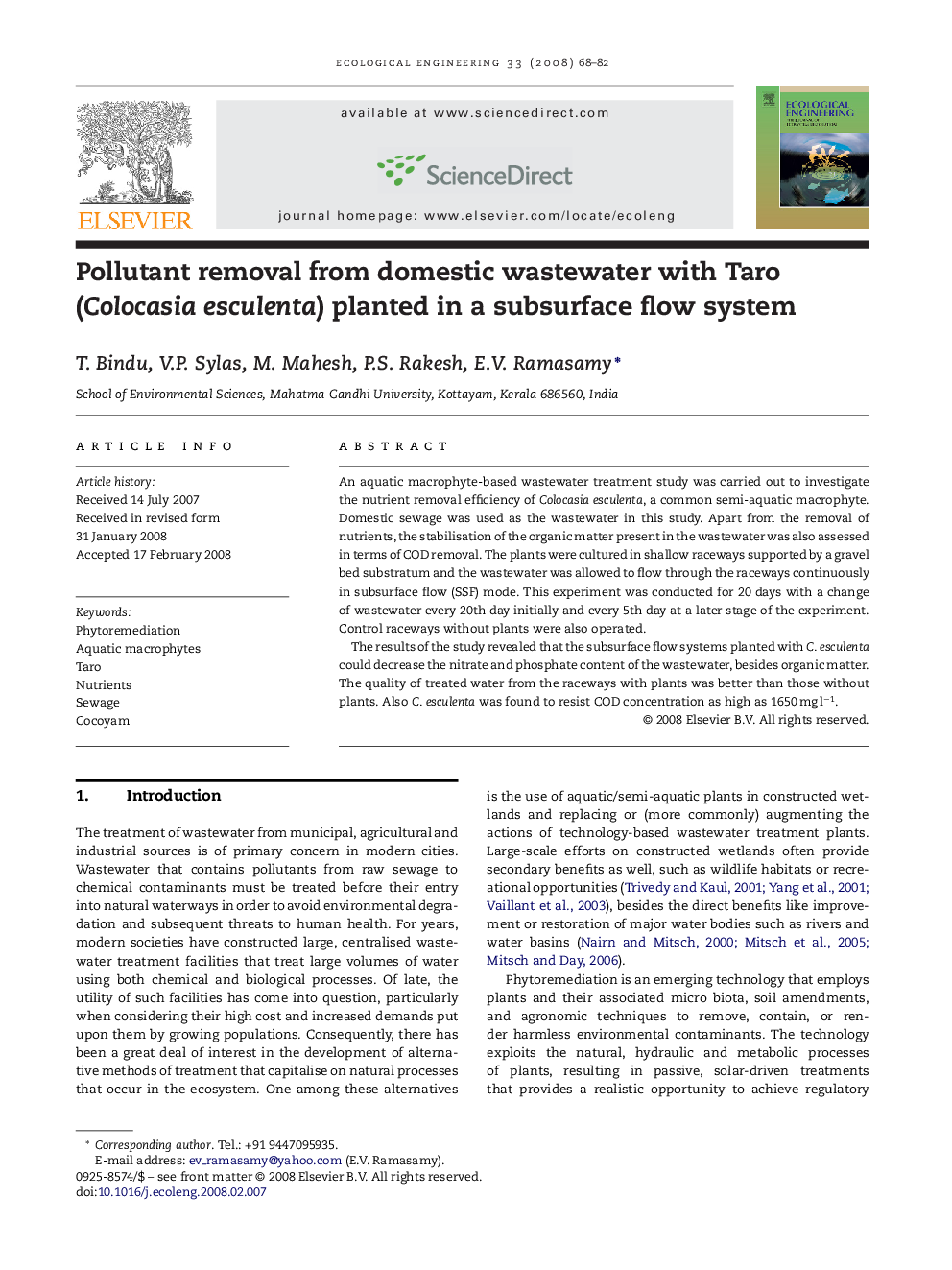| Article ID | Journal | Published Year | Pages | File Type |
|---|---|---|---|---|
| 4390874 | Ecological Engineering | 2008 | 15 Pages |
An aquatic macrophyte-based wastewater treatment study was carried out to investigate the nutrient removal efficiency of Colocasia esculenta, a common semi-aquatic macrophyte. Domestic sewage was used as the wastewater in this study. Apart from the removal of nutrients, the stabilisation of the organic matter present in the wastewater was also assessed in terms of COD removal. The plants were cultured in shallow raceways supported by a gravel bed substratum and the wastewater was allowed to flow through the raceways continuously in subsurface flow (SSF) mode. This experiment was conducted for 20 days with a change of wastewater every 20th day initially and every 5th day at a later stage of the experiment. Control raceways without plants were also operated.The results of the study revealed that the subsurface flow systems planted with C. esculenta could decrease the nitrate and phosphate content of the wastewater, besides organic matter. The quality of treated water from the raceways with plants was better than those without plants. Also C. esculenta was found to resist COD concentration as high as 1650 mg l−1.
